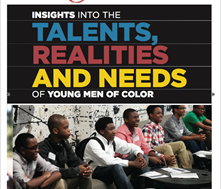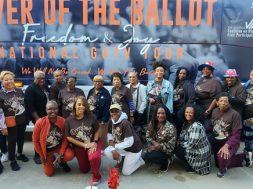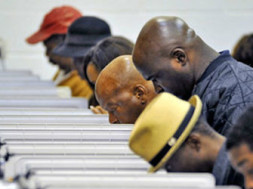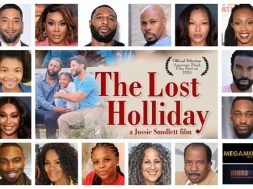Research by MEE Productions Indicates That Digital Devices Can Be a Path to Success for Young Black and Latino Males
Philadelphia, PA – A newly released report reveals that improving life outcomes for boys and men of color will rely heavily on their access to trusted resources, both in face-to-face interactions and online. In “Heard, Not Judged – Insights into the Talents, Realities and Needs of Young Men of Color,” researchers concluded that the creative use of mobile digital devices can be an effective tool to help boys and men of color (BMOC) overcome adversity and achieve their goals.
The nationwide, community-based participatory research was conducted by MEE Productions, Inc., a health communications market research and social marketing firm that specializes in leveraging communication strategies to solve problems of underserved communities. The research was co-funded by The California Endowment and The Open Society Foundations’ Campaign for Black Male Achievement.
The “Heard, Not Judged” report is based on focus groups and lifestyles/attitudinal surveys with young males of color in nine U.S. cities: Philadelphia, Oakland, Los Angeles, Long Beach, New York City (Bronx), Baltimore, Atlanta, New Orleans and Detroit. MEE researchers got 18 to 24 year-old males of African and Hispanic descent to open up about their lives — the everyday challenges they face, their use of technology, who matters to them (and who doesn’t) and the need for access to jobs, education, mentoring, and health care. All participants were in the lowest 20% in income of the U.S. population, with average annual household incomes of less than $40,000.
“Our research found that right now, many young men of color don’t feel personally connected to resources in their communities, because they don’t trust them and they are not seen as credible or culturally relevant,” said Ivan Juzang, MEE’s founder and president. “We wanted to explore whether a brand-driven, private sector approach using the technology young men already embrace could work better than traditional, public sector approaches in erasing disparities that have put young BMOCs at a competitive disadvantage.”
Based on the key findings, the report concludes that:
BMOC need both trusted, real-time online resources and face-to-face interactions to help them make informed daily decisions, build coping skills, and develop their innate talents;
Expanded access to culturally relevant and compelling digital platforms that offer trusted services, tools and knowledge can create positive benefits for Black and Latino males;
Helping BMOC’s identify and act on opportunities to use their skills and talents can take them from merely surviving to thriving.
Researchers found the young men’s responses to interview questions both encouraging and troubling. The research uncovered BMOC’s deep love and reverence for family and valuing education as a way to better their condition. However, responses also uncovered a very narrow concept of optimal health (focused mainly on physical wellness), along with their (valid) concerns about crime and drugs in their community, the rigors of daily survival in their tough environments and whether the competition to achieve the American Dream is “rigged” against them. They recognized all of these circumstances as potential barriers to success.
As a follow-up to the research, Mr. Juzang and Mr. Darryl Cobbin, whose company Brand Positioning Doctors partnered with MEE on the project, are exploring the creation of a branded digital platform leveraging a series of mobile apps that reflect the lifestyle and culture of BMOC. Boys and men of color could use their mobile devices for “one-stop shopping” in accessing jobs, education, health care and social services, as well as entertainment and retail discounts, Mr. Cobbin said: “Our goal is to provide a way for young men to lift themselves up with information, tools and resources. Young men of color will become self-sufficient assets to this nation, which has all too often seen them only as a threat or a burden.”
To read more findings and recommendations from the report, or to view videos from the audience research, visit www.HeardNotJudged.com.






